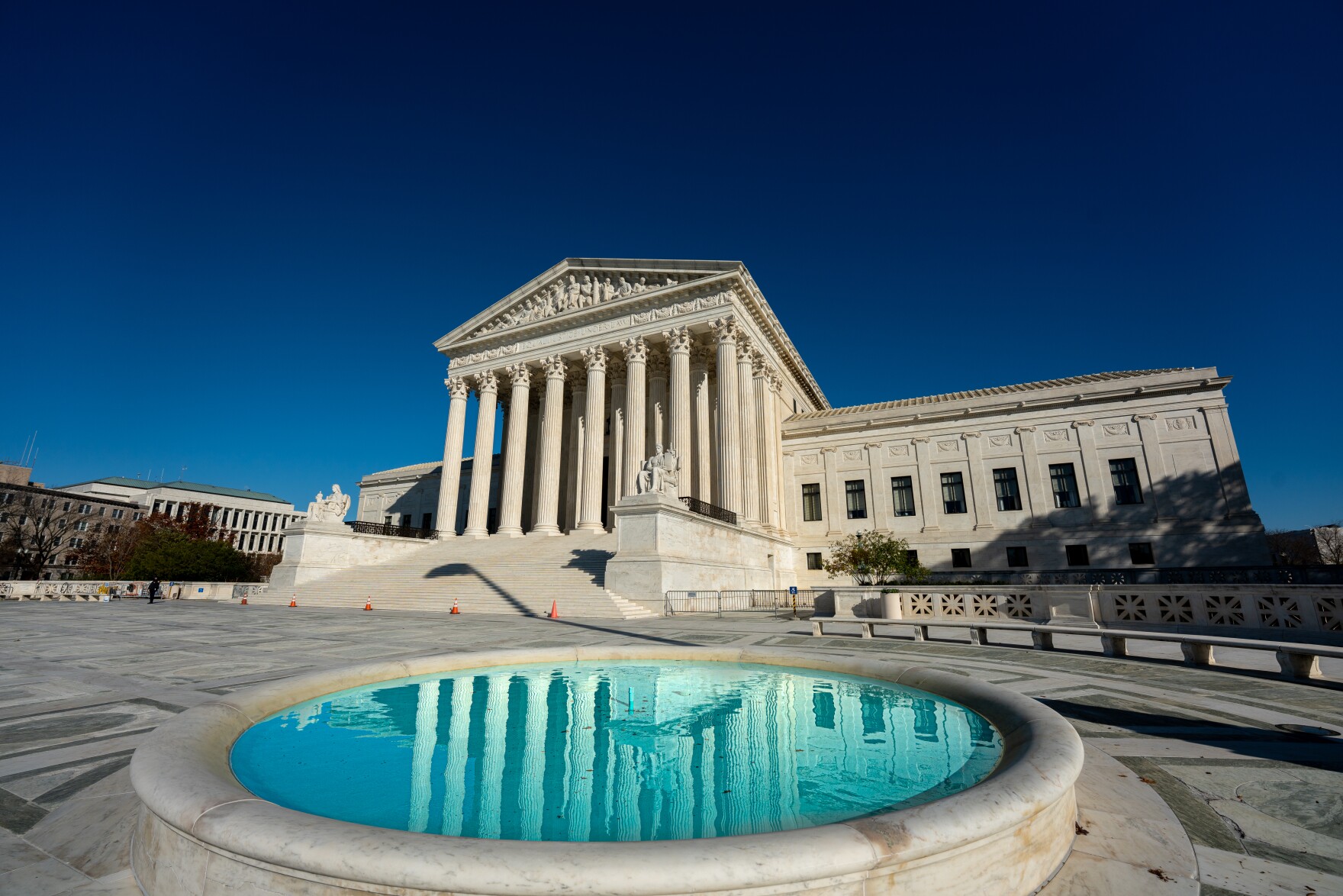
- Details
- By Darren Thompson
On Monday, June 13, the Supreme Court ruled in Denezpi vs. United States 6-3 that a Navajo man’s double-jeopardy rights were not violated by the federal court after he was first prosecuted and sentenced by the Ute Mountain Ute Tribe in Utah for a violent sexual offense against another citizen of the Navajo Nation.
Merle Denezpi was accused of aggravated sexual abuse in July 2017 on the Ute Mountain Ute Indian Reservation (Colorado, New Mexico, and Utah) against his girlfriend and pleaded guilty to a single count of assault and battery and was sentenced to time served, or 140 days, in December 2017 by the Ute Mountain Ute Tribal Court, which is a Code of Federal Regulations (CFR) court.
CFR courts are judicial entities created by Congress to enable federally recognized tribes to prosecute members of other federally recognized tribes if no tribal court has been established on a reservation.
Denezpi was later indicted by a federal grand jury for the federal offense of aggravated sexual abuse for the same incident and later convicted for one count of aggravated sexual abuse in Indian Country. He was sentenced to 360 months in federal prison and ten years of supervised release.
Denezpi argued that his subsequent prosecution in federal court following his conviction in the Ute Mountain Ute Tribal court violated the Double Jeopardy Clause of the Fifth Amendment of the U.S. Constitution, which protects individuals from being prosecuted twice for the same offense, or double jeopardy by the same sovereignty.
In his argument, Denezpi petitioned in federal court that the CFR court derives some of its judicial power from the United States.
However, the United States argued that the Ute Mountain Ute’s sovereignty is separate from the federal government. In other words, it was solely up to the court to prosecute Denezpi for the crime and regardless of proceedings in CFR court, the federal government would have prosecuted him for the sexual abuse in question. They argued that his rights to be free of double-jeopardy were not violated.
Justice Amy Barrett delivered the opinion of the Court, and Roberts, Thomas, Breyer, Alito and Kavanaugh joined Barrett. Justice Neil Gorsuch filed a dissenting opinion, with Sotomayer and Kagan joined in the dissent.
“Two offenses can be separately prosecuted without offending the Double Jeopardy Clause—even if they have identical elements and could not be separately prosecuted if enacted by a single sovereign,” Justice Amy Barrett wrote in her opinion of Denezpi v. United States.
She continuously pointed out that Denezpi’s single act transgressed two laws: the Ute Mountain Ute Code’s assault and battery ordinance and the United States Code’s prosecution of aggravated sexual abuse in Indian country. In other words, prosecution for a tribal offense does not bar a later prosecution for a federal offense.
“The Double Jeopardy Clause does not prohibit successive prosecutions by the same sovereign,” Justice Barrett wrote. “It prohibits successive prosecutions ‘for the same offence [sic].’”
The court ruled that because the Ute Mountain Ute Tribe and the Federal Government are distinct sovereigns, the offenses are not the same and Denezpi’s claims to Double Jeopardy were not violated.
Dissenting Opinion
Justice Gorsuch, in his dissent, argued that Denezpi was prosecuted twice for the same crime.
“First, they charged him with violating a federal regulation,” Justice Gorsuch wrote in his dissent. “Then, they charged him with violating an overlapping federal statute. Same defendant, same crime, same prosecuting authority.”
Gorsuch also explained that the CFR court who prosecuted Denezpi is part of the Federal Government.
“Instead of assimilating state and territorial crimes, federal regulations today assimilate tribal crimes,” he wrote. “They do so, however, only if and to the extent those tribal crimes are ‘approved by the Assistant Secretary [of] Indian Affairs or his or her designee.’”
In other words, crimes and codes to prosecute them in CFR courts must be approved by the Assistant Secretary of Indian Affairs. Furthermore, those who prosecuted him were employed and controlled by the federal government.
There are five CFR courts in the nation, serving 16 tribes, out of more than 400 tribal justice systems in the United States.
More Stories Like This
NCAI Passes Two Emergency Resolutions on Immigration Enforcement ActivitiesChickasaw Lighthorse Police Officer named Indian Country Law Enforcement Officer of the Year
Indian Gaming Association Rallies Broad Coalition Against Sports Event Contracts It Calls Illegal Threat to Tribal Sovereignty
Navajo Resources and Development Committee Issues Notice on Livestock Inspection Requirements
American Prairie, Tribal Coalition Files Protest Over Rescinded Grazing Rights
Help us defend tribal sovereignty.
At Native News Online, our mission is rooted in telling the stories that strengthen sovereignty and uplift Indigenous voices — not just at year’s end, but every single day.
Because of your generosity last year, we were able to keep our reporters on the ground in tribal communities, at national gatherings and in the halls of Congress — covering the issues that matter most to Indian Country: sovereignty, culture, education, health and economic opportunity.
That support sustained us through a tough year in 2025. Now, as we look to the year ahead, we need your help right now to ensure warrior journalism remains strong — reporting that defends tribal sovereignty, amplifies Native truth, and holds power accountable.
 The stakes couldn't be higher. Your support keeps Native voices heard, Native stories told and Native sovereignty defended.
The stakes couldn't be higher. Your support keeps Native voices heard, Native stories told and Native sovereignty defended.
Stand with Warrior Journalism today.
Levi Rickert (Potawatomi), Editor & Publisher

